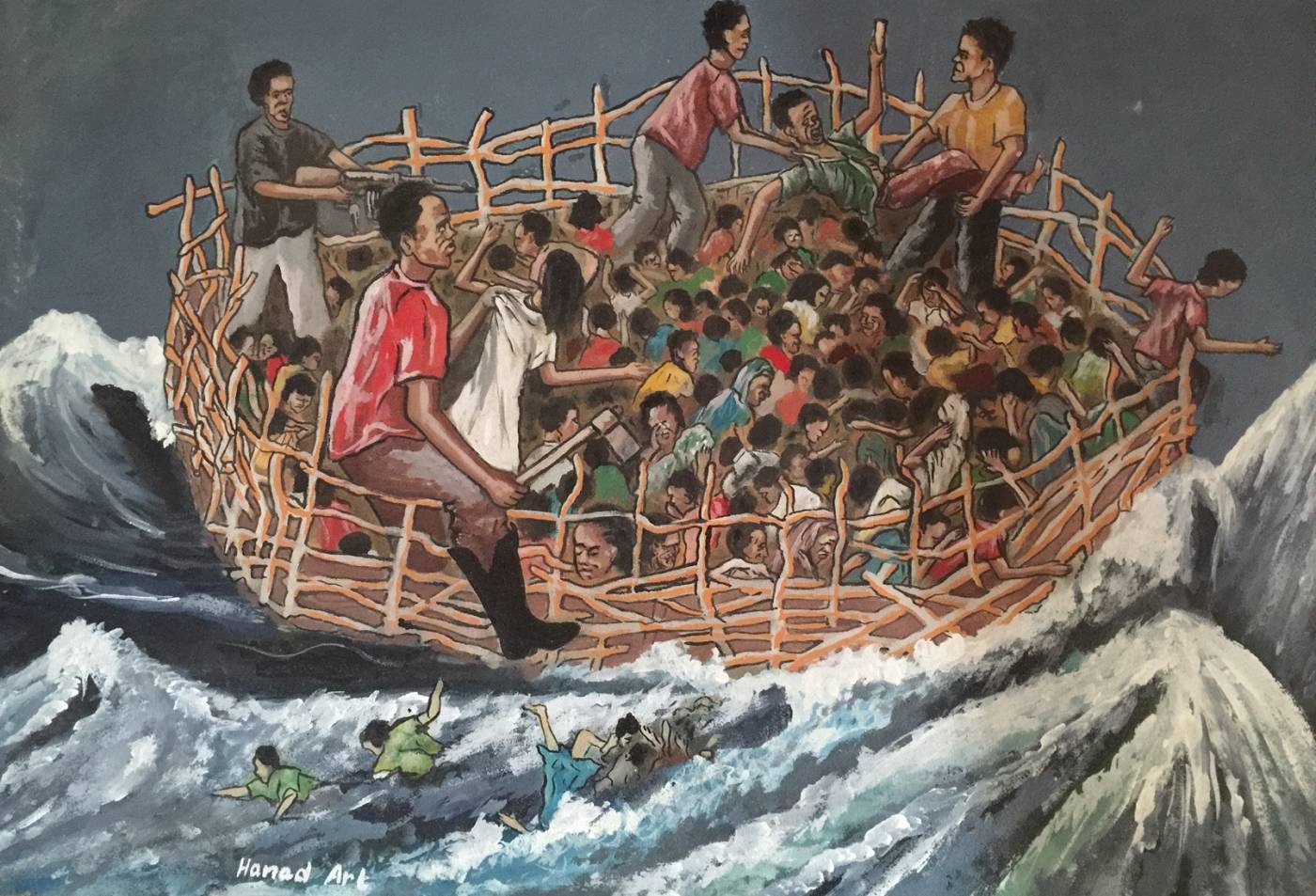Education and Conflict Review (ECR) is a peer-reviewed journal hosted by the Centre for Education and International Development (CEID) at IOE.

Education and Conflict Review (ECR) focuses on debates about education, conflict and international development and aims to provide succinct analyses of social, political, economic and security dimensions in conflict-affected and humanitarian situations. ECR provides a forum for knowledge exchange to build synergies between academics, practitioners and graduate students who are researching and working on educational issues in these environments.
Unlike conventional academic papers, the ECR provides a space for short original contributions (3500-4000 words including references) that draw upon empirical work or present thought-provoking theoretical arguments in the subfield of education and conflict.
Special Issues
Issue 4
Individual articles
- Teachers' gendered experiences of the global health crisis: The effects of the COVID-19 pandemic on teacher well-being during school closures
- Designed for disruption: Lessons learned from teacher education in Myanmar and its borderlands
- Challenges for the government school teachers during COVID-19 and tribal conflicts/feuds in Shikarpur district, Sindh, Pakistan
- The critical role of refugee teachers in the COVID-19 education response: Supporting their continued professional contributions and leadership in displacement and durable solutions
- Educating students in the gender-conflict-COVID-19 intersection
- Education policy-making in South Africa during COVID-19
- Ensuring effective teacher management in refugee settings in the COVID-19 era: A Ugandan case study of policy and practice
- Teaching experiences in contexts of conflict and cultural diversity during the COVID-19 pandemic: The case of a public school in Bogotá
- Hybrid higher education innovation for Syrian refugee learners: Reflections on an embedded community-based research CoMOOC
- Teaching in conflict-affected settings during the COVID-19 pandemic in Kenya
- 'We have dealt with this situation randomly': A peer ethnographic approach with teachers in refugee settings in the age of COVID-19
Issue 3
Individual articles
- My life as a second-class human being: Experiences of a refugee academic - Tejendra Pherali
- Syrian higher education and social capital in times of conflict - Musallam Abedtalas, Abdulhamed Alawak, Wissam Aldien Aloklah,
- Abdulnaser Aljasem and Iman Sarmini
- Building solidarity through comparative lived experiences of post-conflict: Reflections on two days of dialogue - Dina Belluigi and Tom Parkinson
- Academic socialisation through collaboration: Textual interventions in supporting exiled scholars' academic literacies development - Baraa Khuder and Bojana Petrić
- Higher education and Syrian refugees' navigation of economic, social and political constraints in exile - Kathleen Fincham
- The survival of universities in contested territories: Findings from two roundtable discussions on institutions in the North West of Syria - Juliet Millican
- Lessons from an evolving model to support higher education in countries affected by conflict - Teresa Hanley
- Rebuilding higher education in Northern Syria - Fateh Shaban
- Supporting peacebuilding in Syria through universities: The role of cultural heritage - Abdulhalim Abdullah, Wael Ahmad, Samir Al Alabdullah, Rachid Chikhou and Adnan Rachid Mamo
- Agricultural knowledge from academy to farming communities: The role of higher education in enhancing food security in Syria - Shaher Abdullateef, Esraa Almashhour, Abdulmonem Alabboud, Basem Mohamed Saleh, Abdulrahman Albayoush, Muhammed Assaf and Andrew Adam-Bradford
- The effect of the Syrian crisis on electricity supply and the household life in North-West Syria: a university-based study - Fuad Alhaj Omar, Ibrahim Mahmoud, Abdulrahman Hussian, Lennart Mohr, Hanadi Omaish Abdullah and Abdulnasser Farzat
Issue 2
Individual articles
- Education and conflict: Emergence, growth and diversification of the field - Tejendra Pherali
- Societal security and education in deeply divided societies - Kelsey Shanks
- Analysing donor conceptualisations of state fragility - Robin Shields and Julia Paulson
- The need for contextualisation in the analysis of curriculum content in conflict - Alexandra Lewis
- Evidence hungry, theory light: Education and conflict, SDG16, and aspirations for peace and justice - Julia Paulson
- Horizontal inequalities and conflict: Education as a separate dimension of horizontal inequalities - Arnim Langer and Line Kuppens
- Paulo Freire and critical consciousness in conflict-affected contexts - Arran Magee and Tejendra Pherali
- Refugee education: Backward design to enable futures - Sarah Dryden-Peterson
- Education, conflict, peace-building and critical realism - Priscilla Alderson
- Achieving educational rights and justice in conflict-affected contexts - Ritesh Shah and Mieke Lopes Cardozo
- Conceptualising critical peace education for conflict settings - Monisha Bajaj
- The '4 Rs' as a tool for critical policy analysis of the education sector in conflict affected states - Mario Novelli, Mieke Lopes Cardozo and Alan Smith
- Education and violent extremism: Insights from complexity theory - Lynn Davies
- Education in emergencies: 'What works' revisited - Dana Burde, Heddy Lahmann and Nathan Thompson
Issue 1
Individual articles
- Democracy in Somaliland - Michael Walls
- Higher education partnerships for peace and development - Tejendra Pherali and Alex Lewis
- Somali diaspora and homeland relations - Idil Osman
- Looking for the real refugee crisis: Researching Somali displacement near and far - Laura Hammond
- Somalia stability: Hostage to local, regional and distant actors - Nasir M. Ali
- Going on Tahriib: Young Somalis and the risky journey to Europe - Nimo-Ilhan Ali
 Close
Close

